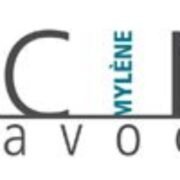Best Tax Lawyers in Sierre
Share your needs with us, get contacted by law firms.
Free. Takes 2 min.
List of the best lawyers in Sierre, Switzerland
1. About Tax Law in Sierre, Switzerland
Tax law in Sierre, a town in the canton of Valais, operates within Switzerland’s three-tier system: federal, cantonal, and communal levels. Each level has its own tax base, rates, and filing requirements. In practice, residents and businesses in Sierre deal with both cantonal and federal taxation, plus municipal levies as applicable. A Swiss tax regime combines direct taxes on income and wealth with value added taxes on goods and services.
The Swiss tax framework relies on cooperation between authorities and a domestic tax culture that emphasizes self reporting and regular compliance checks. This means accurate record keeping, timely filings, and awareness of jurisdictional rules are essential for individuals and businesses in Sierre. For cross-border scenarios, additional considerations arise due to proximity to Italy and dynamic cross-border labor movements in the Valais region.
For authoritative overview, see the Federal Tax Administration guidance on how Switzerland structures taxes at federal, cantonal, and communal levels. This background helps explain why local counsel in Sierre often coordinates with cantonal and federal authorities to resolve complex matters.
Switzerland taxes are administered by federal, cantonal, and communal authorities, each with distinct responsibilities and procedures.
2. Why You May Need a Lawyer
Below are concrete, real-world scenarios in Sierre where expert tax counsel can make a difference. Each example reflects common issues faced by residents and local businesses in Valais.
- Cross-border worker taxation - A resident of Sierre who works in Italy receives income in multiple jurisdictions. A legal counsel can determine proper withholdings, mayoralty credits, and how to claim double tax relief under Swiss and Italian rules.
- Tax residency and domicile disputes - If you recently moved to Valais or spent substantial time in another canton, you may face questions about tax residency status and which jurisdiction tax should apply to worldwide income.
- Real estate acquisitions and property taxes - Purchasing a second home in Sierre can trigger cantonal and municipal real estate taxes, plus potential deductions. A lawyer can structure the purchase to optimize property and wealth taxes.
- Wealth and inheritance planning within Valais - Inheritance and gift tax rules vary by canton. An avocats fiscaliste can design plans that balance wealth transfer with cantonal tax obligations.
- Corporate tax compliance for small and medium enterprises - Local businesses must manage cantonal taxes, social charges, and VAT reporting. A tax solicitor can help with VAT registration, compliance schedules, and audits.
- Tax disputes and audits with cantonal authorities - If the Administration cantonale des contributions questions deductions or requests adjustments, a lawyer can represent the client in calls, meetings, and formal appeals.
3. Local Laws Overview
The Swiss system includes federal tax laws that apply across all cantons, plus cantonal and municipal laws specific to Valais. The following are key law references that commonly affect residents and businesses in Sierre.
- Loi fédérale sur l'impôt fédéral direct (LIFD) - Federal direct tax law governing how individuals and corporations are taxed at the federal level. It interacts with cantonal and communal taxes to determine total liability. (Federal law; consult the Swiss Federal Tax Administration for current provisions.)
- Loi fédérale sur la taxe sur la valeur ajoutée (LTVA / TVA) - Federal value added tax framework covering most goods and services. The standard rate is 7.7 percent, with reduced rates for certain goods and services. (Source: Federal Tax Administration; verify current rates and exemptions.)
- Loi sur les impôts directs du canton du Valais (Loi cantonale sur les imp taxes directs) - Valais cantonal regulation setting out how cantonal and communal taxes are computed, declared and collected within the canton. The regulation is periodically amended to reflect changes in fiscal policy and BEPS compliance. (See the Valais cantonal government publications for the latest text and changes.)
Recent changes and reforms in Valais often focus on cross-border taxation, withholding practices for cross-border workers, and alignment with federal harmonization efforts. For current provisions and amendments, consult the cantonal tax authority and the Federal Tax Administration.
Official sources provide the most up-to-date guidance on rates, allowances, and filing deadlines. See the references below for authoritative materials.
4. Frequently Asked Questions
What is the difference between federal and cantonal taxes in Switzerland?
Federal taxes fund national programs and apply to all residents. Cantonal taxes are assessed by the canton and municipal authorities and vary by location, income level, and wealth. Both levels contribute to the total tax burden.
What is the standard VAT rate in Switzerland as of 2024?
The standard VAT rate is 7.7 percent. Reduced rates apply to certain goods and services, such as 2.5 percent for essential goods and 3.7 percent for some accommodation services. Check the Federal Tax Administration for current rates.
How do I determine my tax residency in Valais?
Tax residency generally depends on where you have your center of life interests and where you physically reside for the majority of the year. The cantonal tax authority provides guidance on residency status for income and wealth taxes.
What documents do I need to file taxes in Sierre?
You typically need proof of identity, residency status, income statements, bank and investment statements, real estate holdings, and any deductions or credits you intend to claim. The cantonal authority lists specific requirements each filing cycle.
Do I need a Swiss lawyer for tax disputes in Sierre?
While you can engage a tax advisor, a Swiss lawyer specializing in tax law can represent you in administrative hearings and court proceedings if disputes arise with cantonal authorities.
How long does a typical tax audit or review take in Valais?
Processing times vary by complexity. A straightforward review may take several weeks, while in-depth audits can extend to several months. Your legal counsel can provide a timeline based on your case.
Can I appeal a tax assessment in Sierre?
Yes. You can file an appeal with the cantonal tax administration within the specified deadline. A lawyer can help prepare the appeal and represent you in subsequent proceedings.
Should I hire a local tax lawyer or a national firm?
A local lawyer familiar with Valais and Sierre practices can offer practical guidance on cantonal procedures, while a larger firm may provide broader cross-border expertise. Consider your specific needs and the complexity of the matter.
Do I need to declare foreign assets for Valais tax purposes?
Swiss residents generally must declare worldwide income and certain foreign assets. The exact requirements depend on cantonal rules and international agreements. A tax professional can help ensure compliance.
Is cross-border taxation relevant if I live in Sierre but work in Italy?
Yes. Cross-border workers face rules about where income is taxed and potential relief from double taxation. Consult a tax counsel to optimize withholding and relief claims under Swiss and Italian law.
What is the typical timeline to resolve a tax dispute in Valais?
Resolution timelines vary by case type and court involvement. Administrative appeals can take 3-9 months, while litigation may extend longer. A lawyer can set realistic milestones for your case.
5. Additional Resources
- Federal Tax Administration (FTA) - Switzerland - Official source for direct federal tax, VAT, and national tax policy. https://www.estv.admin.ch/estv/de/home.html
- Swiss Government Portal (ch.ch) - Central hub for information about taxation, residency, and related administrative procedures. https://www.ch.ch/en/
- Valais Cantonal Government - Official information on cantonal regulations, including taxation policies and public notices for the Valais region. https://www.vs.ch
6. Next Steps
- Clarify your tax issue - Write a concise summary of the problem, including dates, amounts, and involved authorities. Do this within 2 days to maintain momentum.
- Collect supporting documents - Gather tax returns, income statements, bank records, property deeds, and notices received from cantonal authorities within 1 week.
- Identify relevant jurisdiction - Determine whether the matter falls under federal, cantonal, or municipal tax rules and note the applicable deadlines. Do this within 3 days.
- Consult a qualified tax lawyer in Sierre - Seek an avocate fiscaliste or solicitor with Swiss tax experience who can assess risk and outline options. Schedule an initial consultation within 2 weeks.
- Request a jurisdictional assessment - Ask the lawyer to confirm whether residency, cross-border status, or real estate taxes apply and to explain potential reliefs or deductions. 1 week after consultation.
- Discuss fee structure and retainer - Confirm hourly rates, retainer expectations, and anticipated total costs before proceeding. Complete within 1 week after initial meeting.
- Prepare a formal engagement plan - Draft a case plan with milestones, expected timelines, and deliverables. Finalize within 2 weeks of engagement.
Lawzana helps you find the best lawyers and law firms in Sierre through a curated and pre-screened list of qualified legal professionals. Our platform offers rankings and detailed profiles of attorneys and law firms, allowing you to compare based on practice areas, including Tax, experience, and client feedback.
Each profile includes a description of the firm's areas of practice, client reviews, team members and partners, year of establishment, spoken languages, office locations, contact information, social media presence, and any published articles or resources. Most firms on our platform speak English and are experienced in both local and international legal matters.
Get a quote from top-rated law firms in Sierre, Switzerland — quickly, securely, and without unnecessary hassle.
Disclaimer:
The information provided on this page is for general informational purposes only and does not constitute legal advice. While we strive to ensure the accuracy and relevance of the content, legal information may change over time, and interpretations of the law can vary. You should always consult with a qualified legal professional for advice specific to your situation.
We disclaim all liability for actions taken or not taken based on the content of this page. If you believe any information is incorrect or outdated, please contact us, and we will review and update it where appropriate.









